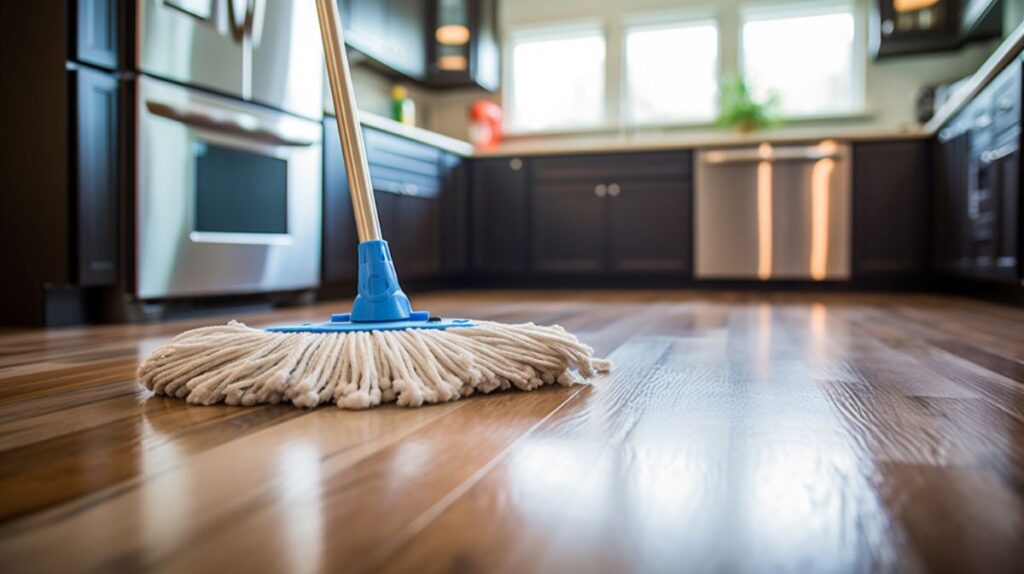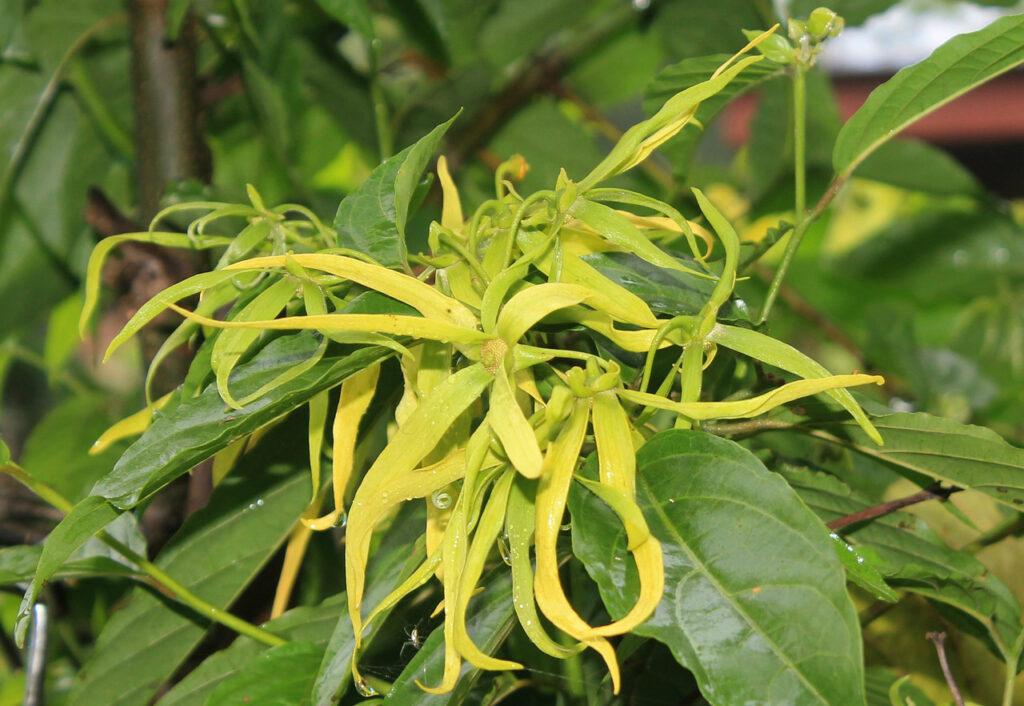All Natural Floor Cleaner Recipe: Effective and Easy DIY
Many people are becoming more aware of the harmful chemicals found in traditional cleaning products and are looking for natural alternatives. One area where this is particularly important is floor cleaning. All-natural floor cleaner recipes are a great way to clean your floors without exposing yourself or your family to potentially harmful chemicals.
- Understanding Natural Floor Cleaners
- Essential Ingredients for Homemade Floor Cleaners
- Why Choose Natural Over Commercial Cleaners
- Preparation of the Floor Before Cleaning
- 6 Specific Recipes for Different Floor Types
- Application Methods for Homemade Floor Cleaners
- Additional Tips for Effective Floor Cleaning
- Benefits of Using Essential Oils in Floor Cleaners
- Safety Considerations When Using Homemade Floor Cleaners
- Frequently Asked Questions
Aside from the obvious benefit of reducing exposure to chemicals in your home, these natural ingredient cleaning recipes are often more environmentally friendly.
Understanding Natural Floor Cleaners
Natural floor cleaners are an excellent alternative to conventional cleaners, which are often laden with harmful chemicals. Homemade floor cleaners can be made using natural ingredients that are safe for the environment and for people with allergies or asthma. These cleaners are non-toxic and do not contain harsh chemicals, making them less likely to damage floors.
These recipes often use simple ingredients such as vinegar, baking soda, and essential oils. These ingredients are not only safe but also effective at cleaning floors.
- One of the benefits of using natural floor cleaners is that they are customizable to suit different floor types. For example, a vinegar and water solution can be used on hardwood floors, while a baking soda and water solution can be used on tile floors.
- It is important to note that while natural floor cleaners are safe, it is still important to use them responsibly. For example, essential oils should be used sparingly as they can be harmful in large quantities.
- It is important to test any new cleaner on a small, inconspicuous area of the floor before using it on the entire floor.
In summary, natural floor cleaners are a safe and effective alternative to conventional cleaners. Again, reducing your daily exposure to chemicals is important and something we write about all the time here at Enticingly Simple.
Essential Ingredients for Homemade Floor Cleaners
Let’s take a closer look at some of the key ingredients commonly used in homemade floor cleaners. These ingredients are not only effective in cleaning floors, but they are also safer for the environment and your family. Note that not all the below ingredients should be used for all floor types; we’re just listing the common ingredients for added context.
Vinegar
Vinegar is a popular ingredient in homemade floor cleaners because it is a natural disinfectant and deodorizer. It is also effective in removing stains and grime from floors. White vinegar is the most commonly used type of vinegar in floor cleaners, but apple cider vinegar can also be used.
Water
Water is the base of most homemade floor cleaners. It is used to dilute other ingredients and to help spread the cleaner evenly across the floor. It’s important to use clean, filtered water when making floor cleaners to avoid introducing contaminants to your floors when possible.
Essential Oil
Essential oils are often added to homemade floor cleaners to give them a pleasant scent and to provide additional cleaning power. Some popular essential oils for floor cleaners include lemon, lavender, peppermint, and tea tree oil.
Rubbing Alcohol
Rubbing alcohol is a natural disinfectant that can kill germs and bacteria on floors. It can also be effective at removing stains and grime. However, it is important to use rubbing alcohol in moderation as it can be harsh on some types of flooring. We don’t ever see a need to include this as an ingredient in any of our DIYs, but it is included in some recipes.
Castile Soap
Castile soap is a natural soap made from vegetable oil. It is gentle on floors and effective in removing dirt and grime. It is also biodegradable and safe for the environment. We use castile soap all the time for various applications, from hand soap to garden insecticidal spray.
Baking Soda
Baking soda is a natural abrasive and can be used to scrub floors. It is also effective in removing odors from floors. However, it is important to use baking soda in moderation as it can be abrasive on some types of flooring.
Natural Dish Soap or Detergent
Dish soap is effective in removing grease and grime from floors. However, using a mild dish soap and rinse the floor thoroughly to avoid leaving a soapy residue is important.
Borax
Borax is a natural mineral that can be used to clean floors. It effectively removes stains and grime and can also be used as a natural deodorizer.
Why Choose Natural Over Commercial Cleaners
When it comes to cleaning floors, many people opt for store-bought cleaners without realizing the potential harm they can cause to their health and the environment. Here are a few reasons why choosing natural floor cleaners over commercial ones is the wisest option.
Chemicals
Commercial floor cleaners often contain harsh chemicals such as ammonia, bleach, and phosphates. These chemicals can harm the environment and human health, causing respiratory problems, skin irritation, and other health issues. On the other hand, natural floor cleaners are made with non-toxic ingredients that are safe for both people and the environment.
Expensive
Commercial cleaners can be expensive, especially if you have a lot of floor space to clean. Natural floor cleaners, however, are often made with simple ingredients that you may already have in your home, such as vinegar, baking soda, and essential oils. This makes them a cost-effective alternative to store-bought cleaners.
Store-Bought Cleaners
Store-bought cleaners are often packaged in plastic containers, contributing to the growing plastic waste problem. On the other hand, natural floor cleaners can be made in reusable containers, reducing the amount of waste you produce.
Ammonia
Ammonia is a common ingredient in many commercial floor cleaners, but it can harm human health and the environment. Natural floor cleaners do not contain ammonia, making them a safer choice for your home.
Natural floor cleaners are a safer, more cost-effective, and environmentally friendly alternative to commercial cleaners. You can keep your home clean just as effectively by choosing natural cleaners.
Preparation of the Floor Before Cleaning
Before cleaning the floor, it is important to prepare it properly. This will ensure that the cleaning process is effective and efficient. Here are a few tips to prepare the floor before cleaning:
- Sweep or vacuum the floor to remove loose dirt and debris. This will prevent the dirt from getting pushed around during mopping and help to avoid scratches on the floor.
- Use a soft brush or cloth to scrub gently if there are any stubborn stains or marks on the floor. Avoid harsh chemicals or abrasive materials, as they can damage the floor.
- If the floor is particularly dirty or greasy, consider using a degreaser or a floor cleaner specifically designed for the type of flooring. Always follow the instructions on the label and test the cleaner on a small, inconspicuous area first to ensure that it does not damage the floor.
- If the floor is made of wood, laminate, or other types of flooring that can be damaged by water, avoid using too much water during cleaning. Use a damp mop or cloth instead of a wet one, and dry the floor thoroughly after cleaning.
By following these simple steps, you can ensure that the floor is properly prepared for cleaning. This will help make the cleaning process more effective and efficient and ensure that the floor stays clean and in good condition for longer.
6 Specific Recipes for Different Floor Types
When it comes to all-natural floor cleaners, there are different recipes for different types of floors. Here are some specific recipes for different floor types:
Tile Floors
For tile floors, mix 1 cup of white vinegar with 1 gallon of hot water. Add a few drops of essential oil for a pleasant scent. This solution will clean and disinfect your tile floors without damaging the grout. This works as an easy shower spray as well. Optionally, you can add 4-6 tablespoons of natural dish soap and reduce the amount of water for a more concentrated mixture.
Hardwood Floors
Mix 1/4 cup of white vinegar with 1 gallon of warm water for hardwood floors. Add a few drops of olive oil to give your floors a natural shine. Add a couple of drops of any essential oil of your choice for added fragrance. This solution will clean your hardwood floors without leaving any residue.
When cleaning wooden floors, it’s okay if they’re damp, but you should never use so much liquid that you have puddling on the floor, and always dry your floors promptly after cleaning.
Laminate Floors
For laminate floors, mix 1/3 cup of rubbing alcohol with 1 gallon of warm water. Add a few drops of dish soap for extra cleaning power. This solution will clean your laminate floors without leaving any streaks.
Vinyl Floors
For vinyl floors, mix 1 cup of apple cider vinegar with 1 gallon of hot water. Add a few drops of lemon essential oil for a fresh scent. This solution will clean and disinfect your vinyl floors without damaging the finish.
Natural Stone Floors
For natural stone floors, mix 1/4 cup of baking soda with 1 gallon of warm water. Add a few drops of tea tree essential oil for its antibacterial properties. This solution will clean and disinfect your natural stone floors without damaging the surface.
Linoleum Floors
For linoleum floors, mix 1/4 cup of borax with 1 gallon of warm water. Add a few drops of lavender essential oil for a pleasant scent. This solution will clean and disinfect your linoleum floors without leaving any residue.
These all-natural floor cleaner recipes are safe, effective, and easy to make. They will help you keep your floors clean and healthy without exposing your family to harmful chemicals.
Application Methods for Homemade Floor Cleaners
When it comes to applying homemade floor cleaners, there are a few different methods that can be used depending on the type of cleaner and the surface being cleaned. Here are some common application methods:
Mop and Bucket
A traditional mop and bucket method may be the best option for larger areas or floors that are heavily soiled. Simply mix the homemade cleaner according to the recipe, fill a bucket with hot or warm water, and add the cleaner. Dip the mop into the bucket and wring out the excess water before applying it to the floor. Work in small sections and rinse the mop frequently to avoid spreading dirt and grime.
Spray Bottle
A spray bottle can be a convenient way to apply the cleaner for smaller areas or spot cleaning. Mix the cleaner according to the recipe and pour it into a spray bottle. Spray the cleaner onto the floor and use a microfiber mop or cloth to wipe away dirt and grime. Shop cloths work great for this kind of cleaning and are more durable than paper towels.
Microfiber Mop
Microfiber mops are a popular choice for applying homemade floor cleaners because they are effective at picking up dirt and grime without leaving streaks. Simply mix the cleaner according to the recipe and apply it to the floor using the microfiber mop. Rinse the mop frequently to avoid spreading dirt and grime.
It’s important to note that regardless of the application method used, it’s important to use hot or warm water when mixing the cleaner. This will help activate the cleaning agents and ensure that the cleaner effectively removes dirt and grime.
Additional Tips for Effective Floor Cleaning
To ensure that your all-natural floor cleaner works effectively, here are some additional tips to keep in mind:
- Use clean water: Always use clean water when mopping your floors. Dirty water can leave residue and streaks on your floors, making them look dull and unclean.
- Avoid suds: While suds may make you feel like your floors are getting cleaner, they can actually leave a soapy residue on your floors. This residue can attract dirt and grime, making your floors look dirtier over time.
- Prevent warping: When using a natural floor cleaner, avoid using too much liquid on your floors, especially hardwood floors. Excessive moisture can cause your floors to warp, which can be costly to repair.
- Dilute properly: Make sure to dilute your all-natural floor cleaner appropriately. Using too much cleaner can damage your floors, while using too little may not effectively clean them.
- No-rinse cleaners: Some all-natural floor cleaners may not need to be rinsed. This is a consideration when cleaning your floors, depending on your ingredients. If you’re going to add castile soap or similar ingredients, it would be best to go over the area again with a wet mop to remove soap residue.
- Etch-prone floors: Some types of flooring, such as marble or concrete, can be etched by acidic cleaners. If you’re unsure whether your floors are etch-prone, test your cleaner on a small, inconspicuous area first or contact a flooring expert to be extra cautious.
By following these tips, you can ensure that your all-natural floor cleaner is effective and safe for your floors.
Benefits of Using Essential Oils in Floor Cleaners
Essential oils are a popular ingredient in natural floor cleaner recipes, and we always use them in our DIY household cleaners. They offer many benefits that make them a great choice for cleaning floors. Here are some of the benefits of using essential oils in floor cleaners:
- Antibacterial properties: Many essential oils, such as tea tree oil and lavender, have natural antibacterial properties that can help kill germs and bacteria on your floors.
- Pleasant fragrance: Essential oils can add a pleasant fragrance to your floor cleaner without the use of synthetic fragrances. Orange and peppermint essential oils are popular for their fresh and invigorating scents.
- Non-toxic: Essential oils are a natural and non-toxic alternative to harsh chemicals often found in commercial floor cleaners. However, use caution around pets since some essential oils are toxic to dogs and cats.
- Eco-friendly: Essential oils are derived from plants and are biodegradable, making them eco-friendly for cleaning your floors.
- Versatile: Essential oils can be used in various floor cleaner recipes, allowing you to customize your cleaner to suit your needs.
- Stress-relieving: Some essential oils, such as lavender, have a calming effect and can help relieve stress and anxiety while you clean your floors.
Essential oils offer many benefits when used in floor cleaner recipes. They are a natural, non-toxic, and eco-friendly alternative to harsh chemicals and can help keep your floors clean and smelling fresh.
Safety Considerations When Using Homemade Floor Cleaners
When using homemade floor cleaners, it is important to consider safety precautions to avoid any potential hazards. Here are some safety tips to keep in mind:
Keep Pets Away
Pets can come into contact with the cleaning solution and potentially ingest harmful ingredients. It is recommended to keep pets away from the cleaning area until the floor is completely dry.
Store Cleaners Properly
Homemade cleaners should be stored in a cool, dry place. Avoid storing cleaners in areas that are easily accessible to children or pets. Make sure to label all cleaners clearly to avoid any confusion.
Check Your Pantry
Before making a homemade cleaner, make sure to check your pantry for any potential allergens or harmful ingredients. Some common ingredients, such as vinegar and baking soda, can harm pets if ingested.
Avoid Mixing Cleaning Solutions
Mixing cleaning solutions can be dangerous and potentially harmful. It is recommended to use one cleaning solution at a time and avoid mixing different cleaning solutions together.
By following these safety considerations, you can ensure that your homemade floor cleaner is safe and effective for use in your home.
Frequently Asked Questions
What are the best natural ingredients to use in a homemade floor cleaner?
Several natural ingredients can be used to make a homemade floor cleaner. Some of the most effective options include white vinegar, baking soda, lemon juice, and essential oils. These ingredients have natural cleaning properties that can help remove dirt and grime from floors without the use of harsh chemicals.
How can I make a natural floor cleaner without vinegar?
If you prefer not to use vinegar in your homemade floor cleaner, there are several alternatives you can try. One option is to use lemon juice instead of vinegar. Another option is to use a mixture of baking soda and water to clean your floors. You can also add essential oils to your homemade floor cleaner to give it a pleasant scent.
What is the best homemade solution for cleaning hardwood floors?
Hardwood floors require special care to avoid damage. One of the best natural solutions for cleaning hardwood floors is a mixture of white vinegar and water. This solution is gentle enough to use on hardwood floors without causing damage. You can also add a few drops of essential oils to the mixture to give it a pleasant scent. See the recipes in the post for additional information.
How do I make a homemade floor cleaner that smells good?
You can add essential oils to your mixture if you want to make a homemade floor cleaner that smells good. Some of the best essential oils for cleaning floors include lemon, lavender, and peppermint. You can also experiment with different combinations of essential oils to create a custom scent. We love using floral oils blended with citrus oils.


